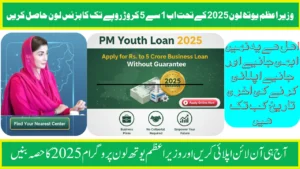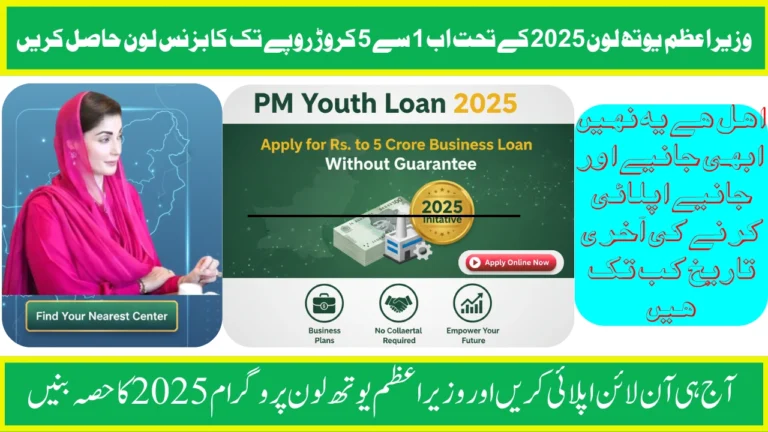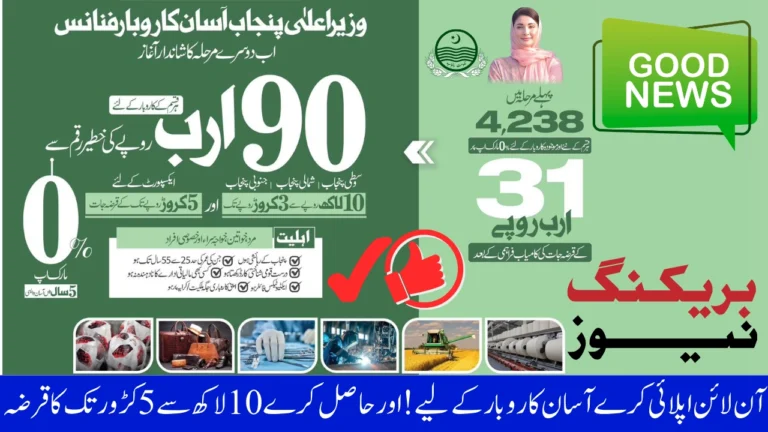Punjab Govt Electric Car Scheme Sep Update – How to Apply Online, Eligibility & Documents Needed
The Punjab Govt Electric Car Scheme 2025 is one of the most ambitious initiatives launched by the provincial government to promote green energy, reduce fuel dependency, and make modern transport affordable for middle-class families. With rising fuel prices and increasing pollution, this scheme has been designed to provide subsidized electric cars on easy installment plans. The government aims to encourage citizens to adopt eco-friendly vehicles while also reducing the burden of petrol and diesel costs on households.
This program is not just about providing cars; it is about transforming lifestyles, reducing environmental damage, and creating a sustainable future for Pakistan. The scheme focuses on affordability, accessibility, and inclusivity, with special quotas for students, women, and salaried individuals. Whether you are a daily commuter, a student, or a small trader, this scheme has been tailored to make electric mobility a reality for everyone.
In this article, we will cover everything you need to know about the Punjab Govt Electric Car Scheme – from its importance, key features, eligibility criteria, and required documents, to the complete online application process. So, if you’ve been waiting to switch to electric, this is your chance.
Why the Punjab Govt Electric Car Scheme Matters
The Punjab Govt Electric Car Scheme 2025 is more than just a financial program—it’s a strategic step towards a greener, cleaner Punjab. Here’s why this initiative holds so much importance:
-
Addressing Climate Change
Pakistan is among the top countries affected by climate change. Introducing electric cars will reduce carbon emissions and make urban areas more breathable. -
Reducing Fuel Costs
With petrol and diesel prices skyrocketing, electric cars present an affordable alternative. The scheme ensures that families can cut travel costs by up to 60% compared to traditional vehicles. -
Supporting Middle-Class Families
The scheme has been designed to help salaried individuals and small business owners who otherwise cannot afford modern vehicles. Subsidized installments make it easier for them to own cars without huge upfront payments.
This initiative not only focuses on individual benefits but also strengthens Pakistan’s commitment to renewable energy and environmental sustainability.
Key Features of the Punjab Govt Electric Car Scheme
The Punjab Govt Electric Car Scheme comes with several exciting features that make it stand out from other vehicle financing options:
-
Subsidies & Incentives – Government-backed subsidies ensure the cost of electric cars remains affordable for citizens.
-
Affordable Installment Plans – Cars can be purchased through easy monthly installments without burdening families.
-
Special Quotas – Reserved slots for women, students, government employees, and differently-abled individuals.
-
Zero Interest Loans – For selected applicants, loans are offered with 0% markup.
-
Eco-Friendly Cars – All vehicles provided under this scheme are certified electric models that meet international safety standards.
By combining affordability with sustainability, the government aims to shift transportation trends towards a modern, eco-friendly future.
Also Read: Punjab Apni Chat Apna Ghar Scheme 2025: Online Apply, Eligibility & Benefits
Eligibility Criteria for Punjab Govt Electric Car Scheme
Not everyone can apply; the scheme has set clear eligibility criteria to ensure fair distribution:
-
Age Requirement – Applicants must be between 20 and 50 years old.
-
Income Bracket – Priority is given to individuals with monthly income between Rs. 30,000 – Rs. 100,000.
-
Residency – Only permanent residents of Punjab are eligible.
-
Priority Groups – Women, students, teachers, rickshaw drivers, and government employees will get preference.
-
Driving License – Applicants must hold a valid driving license.
These conditions have been put in place to ensure that the scheme benefits genuine applicants who truly need affordable vehicles.
Documents Required for Application
Before applying online, make sure you have all the necessary documents ready:
-
CNIC (Computerized National Identity Card)
-
Recent Passport Size Photograph
-
Proof of Income (Salary Slip / Business Proof)
-
Utility Bill (Electricity, Gas, or Water) for Address Verification
-
Copy of Driving License
-
Bank Statement (Last 6 Months)
Having these documents in digital format (PDF/JPEG) will make the online application smoother and faster.
Punjab Govt Electric Car Scheme – Subsidy & Installment Plans
The scheme offers flexible installment options so applicants from all income levels can afford electric cars:
| Car Model | Down Payment | Monthly Installment | Loan Duration | Markup |
|---|---|---|---|---|
| Compact EV | Rs. 200,000 | Rs. 25,000 | 5 Years | 0% |
| Mid-Range EV | Rs. 400,000 | Rs. 35,000 | 6 Years | 2% |
| Premium EV | Rs. 600,000 | Rs. 50,000 | 7 Years | 3% |
These affordable plans ensure even middle-class families can own a brand-new electric car without financial stress.
Comparison with Traditional Car Financing Options in Pakistan
Here’s how the Punjab Govt Electric Car Scheme compares with conventional car financing:
-
Fuel Savings – Electric cars save 60-70% on travel costs.
-
Interest-Free Loans – Unlike banks, government provides zero markup options.
-
Environmental Benefits – No harmful emissions.
-
Lower Maintenance – Electric cars have fewer moving parts, meaning less servicing costs.
Clearly, the scheme offers long-term financial and environmental benefits over traditional financing.
Impact of the Punjab Govt Electric Car Scheme on Economy
This scheme is expected to positively impact Pakistan’s economy:
-
Job Creation – New opportunities in EV manufacturing, sales, and charging stations.
-
Local Industry Boost – Encouraging local auto companies to produce electric cars.
-
Reduced Fuel Imports – Saving millions of dollars in foreign reserves.
The initiative is not only a relief program but also an economic strategy for long-term growth.
Social & Environmental Benefits of Electric Cars
The social and environmental benefits are huge:
-
Cleaner air in major cities.
-
Reduced noise pollution.
-
Better public health outcomes.
-
Affordable mobility for middle-class families.
By adopting electric cars, Punjab is paving the way for a healthier and greener society.
Challenges Facing Punjab Govt Electric Car Scheme
While the scheme is promising, it faces several challenges:
-
Lack of charging infrastructure in rural areas.
-
High upfront costs despite subsidies.
-
Limited awareness among citizens.
-
Dependence on imported EV batteries.
The government must address these issues to ensure long-term success of the scheme.
Future of Punjab Govt Electric Car Scheme
Looking ahead, the scheme could expand to:
-
Include electric bikes and rickshaws.
-
Offer solar-powered charging stations.
-
Collaborate with private banks for financing.
-
Launch nationwide EV programs.
The future of transportation in Punjab is green, and this scheme is the first big step.
Conclusion
The Punjab Govt Electric Car Scheme 2025 is a game-changing initiative that makes eco-friendly cars affordable for ordinary citizens. With subsidies, zero-interest loans, and easy installments, the government is making sure that electric mobility becomes accessible to everyone.
If you’re looking to save on fuel costs, protect the environment, and own a modern vehicle, this scheme is your golden opportunity. Apply online today and be part of Pakistan’s green revolution.
FAQs about Punjab Govt Electric Car Scheme
Q1: Who can apply for the Punjab Govt Electric Car Scheme?
Anyone between 20–50 years of age with a valid CNIC and driving license.
Q2: Is the scheme available for students?
Yes, special quotas are reserved for students and women.
Q3: How much subsidy is provided?
The government covers a significant portion of the car’s cost, making it affordable.
Q4: Can I apply if I already own a car?
Yes, but preference will be given to those who don’t.
Q5: How will applicants be selected?
Selection will be based on eligibility, income bracket, and priority groups.












